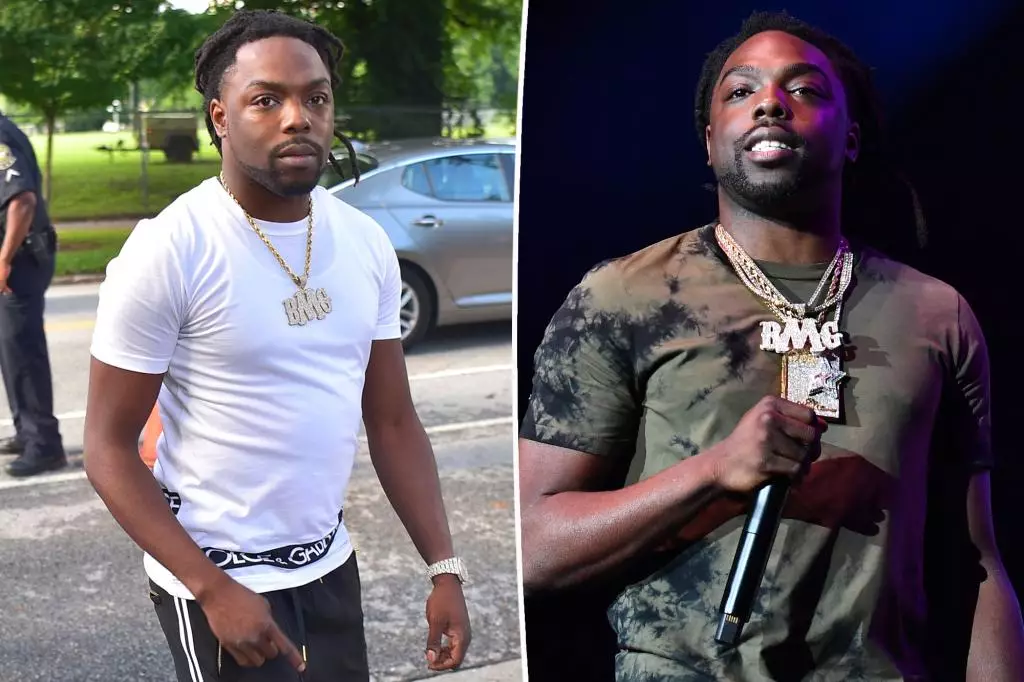The rap community is mourning the loss of Atlanta-based rapper Young Scooter, a significant figure in the Southern hip-hop scene. On what should have been a celebratory day—his 39th birthday—Scooter, born Kenneth Edward Bailey, was pronounced dead due to a fatal leg injury sustained while attempting to evade law enforcement. This tragic incident sheds light not only on the dangers inherent in a life of crime but also on the systemic issues that often trap artists like him in cycles of violence and desperation.
The Circumstances Surrounding His Passing
According to reports, the unfortunate event unfolded following a police response to a reported weapon dispute. Lt. Andrew Smith from the Atlanta Police Department delineated the chaotic moments that led to Scooter’s untimely death. It’s reported that he jumped two fences in a frantic attempt to escape, leading to a severe leg injury that would ultimately prove fatal. This was not a confrontation; it was an act of fear and flight that escalated to deadly consequences.
This incident raises significant questions about the context in which young black men, particularly those in the hip-hop industry, often find themselves. The pressure to maintain a façade of street credibility can lead to potentially dangerous situations—like fleeing the police—that end in tragic outcomes. Young Scooter’s life exemplifies many who grapple with the constant threat of violence and the consequences of a lifestyle that intertwines with crime and conflict.
A Legacy Behind the Music
Young Scooter made a name for himself in the music industry by collaborating closely with prominent artists like Future and Gucci Mane, aligning himself with the Freebandz label in 2012. His mixtape “Street Lottery,” released in 2013, boasted contributions from a formidable lineup, embodying the collaborative spirit that defines Southern rap. However, while his musical career represented potential and achievement, it also reflects the realities of living within a challenging environment filled with structural inequities.
Fans of Young Scooter might remember more than just his infamous tracks; they’ll recall the cultural vibe he encapsulated—one that is often indelibly marked by both aspiration and adversity. The tragedies that befall artists in this genre are not merely individual stories; they are reflective of larger societal issues that warrant serious discussions about how to provide support for at-risk youth in urban settings.
The Impact on the Community
The shocking news of Young Scooter’s death is not just a loss for his family or friends; it reverberates through the larger hip-hop community. His passing serves as a poignant reminder of the fragility of life and the unforeseen consequences of choices made in moments of distress. As fans grapple with this loss, artists and communities alike must confront the harsh realities that too often cast shadows over the vibrant culture of hip-hop.
The legacy left behind by Young Scooter encapsulates a duality: a celebration of artistic contributions and a somber reminder of the challenges that plague many who seek to rise above their circumstances. In remembering him, one cannot ignore the need for collective efforts to foster environments that not only celebrate the art of hip-hop but also protect and uplift the artists who create it.
